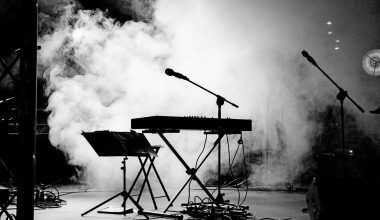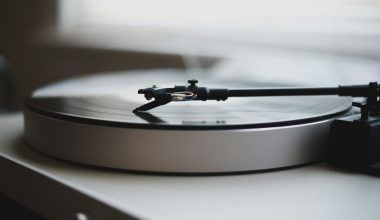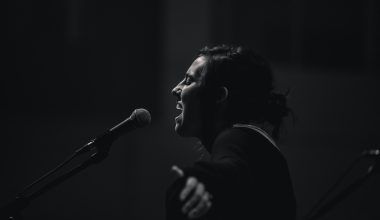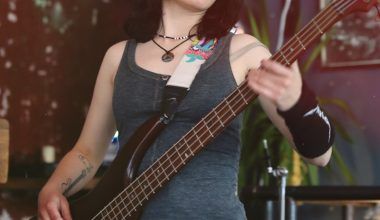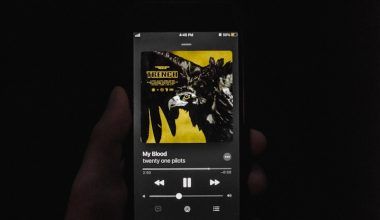Performing live is an art, and having the best microphone for live vocals can make a world of difference. A high-quality microphone not only enhances your voice but also ensures clarity and power, captivating your audience. Whether you’re a solo artist, a band vocalist, or a karaoke enthusiast, choosing the right mic is essential.
In this blog, we’ll explore the top microphones for live vocals, their features, how to choose the perfect one, and tips for optimizing your live sound.
Why Choosing the Best Microphone for Live Vocals Matters
A microphone is more than just a piece of equipment. It’s a tool that conveys your emotions and connects you with your audience. Here’s why picking the best microphone for live vocals is crucial:
- Clarity: A good mic ensures every word and note is clear.
- Feedback Control: Reduces unwanted noise and feedback on stage.
- Durability: Live performances demand robust equipment.
- Dynamic Range: Captures soft and loud sounds without distortion.
Investing in the right microphone can elevate your live performances significantly.
Types of Microphones for Live Vocals
Understanding the different types of microphones helps in selecting the best one for your style and venue.
1. Dynamic Microphones
- Features: Durable, resistant to feedback, handles high sound pressure.
- Best For: Loud environments, such as concerts and gigs.
- Examples: Shure SM58, Sennheiser e935.
2. Condenser Microphones
- Features: Sensitive, captures detailed sound, requires phantom power.
- Best For: Acoustic performances or studio-like settings.
- Examples: Neumann KMS 105, Audio-Technica AE5400.
3. Wireless Microphones
- Features: Freedom of movement, no cables.
- Best For: Performers who need mobility on stage.
- Examples: Shure BLX288/PG58, Sennheiser EW 100 G4.
Top Picks for the Best Microphone for Live Vocals
Here’s a detailed look at the top microphones for live singing:
1. Shure SM58
- Why It’s Great: Known for durability, clear sound, and feedback rejection.
- Price Range: $99-$120.
- Best For: All-around use, from beginners to professionals.
2. Sennheiser e935
- Why It’s Great: Warm, rich sound with superior feedback rejection.
- Price Range: $200-$250.
- Best For: Rock, pop, and live band performances.
3. Neumann KMS 105
- Why It’s Great: Studio-quality sound tailored for live settings.
- Price Range: $700-$800.
- Best For: Solo performers and acoustic shows.
4. Shure Beta 58A
- Why It’s Great: Enhanced frequency response, ideal for powerful vocals.
- Price Range: $150-$200.
- Best For: Professional singers with strong vocal projection.
5. Audio-Technica AE5400
- Why It’s Great: Combines studio-quality clarity with live performance durability.
- Price Range: $300-$350.
- Best For: Performers seeking a condenser mic’s sensitivity.
How to Choose the Best Microphone for Live Vocals
Selecting the right microphone depends on various factors. Here’s what to consider:
1. Vocal Style
- Soft, melodic singers may prefer condenser mics.
- Rock and metal vocalists benefit from dynamic mics.
2. Venue Size
- Small venues may not require high-output mics.
- Large stages need mics with excellent feedback rejection.
3. Durability
- Ensure the mic can withstand drops, sweat, and frequent use.
4. Wireless or Wired
- Wireless mics are great for mobility but may require more maintenance.
- Wired mics are reliable and cost-effective.
5. Budget
- Balance affordability with quality. Entry-level mics like the Shure SM58 offer great value.
Tips for Optimizing Live Vocal Performance
Even the best microphone for live vocals needs proper handling. Here are some tips:
- Mic Technique: Hold the mic at the right distance—2-4 inches from your mouth.
- Angle and Positioning: Avoid pointing the mic directly at speakers to prevent feedback.
- Sound Check: Always test your microphone and sound system before the performance.
- Pop Filters: Use filters or windscreens to reduce plosives.
Proper mic usage ensures your voice shines during live performances.
Common Challenges and Solutions
1. Feedback Issues
- Cause: Mic picking up sound from monitors.
- Solution: Use directional mics and position them away from speakers.
2. Low Volume or Distortion
- Cause: Improper gain settings.
- Solution: Adjust the mixer’s gain and EQ settings.
3. Mic Handling Noise
- Cause: Excessive movement.
- Solution: Practice handling the mic gently or use a stand.
Addressing these challenges ensures a smoother performance.
Microphone Accessories for Live Singing
Enhance your live setup with these accessories:
- Mic Stands: Keep your hands free during performances.
- Pop Filters: Reduce plosive sounds and protect the mic.
- Shock Mounts: Minimize vibrations and handling noise.
- Cables and Adapters: Ensure high-quality and reliable connections.
These add-ons improve the functionality and lifespan of your microphone.
The Future of Microphones for Live Vocals
Technology is continuously improving live vocal microphones. Here’s what to expect:
- AI-Powered Microphones: Automatically adjust settings based on your voice and environment.
- Compact and Lightweight Designs: Easier to handle during performances.
- Enhanced Wireless Technology: Better battery life and signal range.
Staying updated with these trends ensures you’re always equipped with the best tools.
Conclusion
Finding the best microphone for live vocals is an investment in your performance. Whether you’re rocking a stage, serenading a crowd, or delivering a heartfelt ballad, the right microphone makes all the difference.
From the classic Shure SM58 to high-end options like the Neumann KMS 105, there’s a mic for every singer and budget. Pair your microphone with proper technique, care, and accessories to ensure memorable performances.
Related Articles:
For further reading, explore these related articles:
- The Complete Guide to Music Distribution: How to Share Your Music with the World
- How to Write a Song: A Step-by-Step Guide for Beginners
For additional resources on music marketing and distribution, visit Deliver My Tune.

